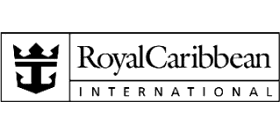 Royal Caribbean completes biofuel testing in fleetwide decarbonisation effort
Royal Caribbean completes biofuel testing in fleetwide decarbonisation effort
Royal Caribbean Group has announced the completion of over 12 consecutive weeks of biofuel testing in Europe as it seeks to significantly cut emissions across its fleet. Royal Caribbean has pursued the use of biofuels to cut its carbon footprint, while MSC Cruises recently sailed the world’s first zero emissions cruise using a blend of bio-LNG.
Symphony of the Seas has been sailing with a biofuel blend to meet part of the ship’s fuel needs since September 19th, becoming the first cruise ship in the global fleet to do so. Royal Caribbean will use data collected during the ship’s various voyages to test consumption levels, pricing, and efficiency as part of a consideration of expanding the use of biofuels to other ships in the fleet.
“This is a pivotal moment for Royal Caribbean Group’s alternative fuel journey,” said Jason Liberty, President & CEO of Royal Caribbean Group. “Following our successful trial of biofuels this summer, we are one step closer to bringing our vision for net-zero cruising to life.”
“As we strive to protect and promote the vibrant oceans we sail, we are determined to accelerate innovation and improve how we deliver vacation experiences responsibly,” he added.
Royal Caribbean began testing biofuels in 2022 and expanded the trail this summer in Europe to two additional ships, the Symphony of the Seas and Celebrity Cruises’ Celebrity Apex.
Royal Caribbean said in a release that onboard technical systems met operational standards, without safety concerns. During the test period, Symphony of the Seas recieved biofuel bunkering in its homeport of Barcelona.
“Royal Caribbean’s success is a clear example of how commitment to innovation makes possible the development of solutions to decarbonize the maritime sector,” said Lluís Salvadó, President of the Port of Barcelona.
“In this case, it involves the cruise sector and focuses on biofuels, an area in which the Port of Barcelona is already working to become an energy hub, producing and supplying zero-carbon fuels, such as green hydrogen and ammonia, and of other almost zero-carbon alternative fuels, such as methanol, biofuels or synthetic fuels,” he added.
The biofuel blends tested were produced by purifying renewable raw materials such as waste oils and fats and combining them with fuel oil to create a more sustainable, cleaner fuel.
Royal Caribbean said it will continue testing the use of different types of biofuels on upcoming European sailings this fall, as well as exploring strategic partnerships with suppliers and ports to ensure the availability of biofuel and infrastructures to advance the maritime energy transition.
Innovation and collaboration between ports and shipping companies is key to accelerating the decarbonization of maritime transport.
Following MSC’s zero emissions cruise, Linden Coppell, the cruise line’s VP of sustainability, called for regulatory and financial incentives for fuel producers to scale-up their production of low-emission fuel alternatives.
